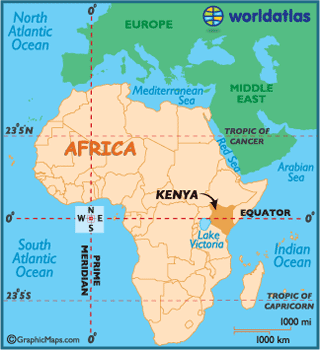 This began with a phone call from my county extension agent who asked me to meet him for lunch. Some folks had contacted him about a missionary from Kenya who wanted to know about dairy farming who I will refer to as "Ken." So, being totally motivated by the offer of french fries and a barbecue sandwich I made plans to go.
This began with a phone call from my county extension agent who asked me to meet him for lunch. Some folks had contacted him about a missionary from Kenya who wanted to know about dairy farming who I will refer to as "Ken." So, being totally motivated by the offer of french fries and a barbecue sandwich I made plans to go.The lunch meeting consisted of my extension agent and one of his friends, Ken, and two men with the organization that are helping Ken to meet people to learn about dairy farming. Maybe I should preface the rest by saying everything I know about dairy and agriculture in Kenya I learned from Ken.
Teach A Man To Fish Equals Teach A Man To Milk?
Ken began explaining how he was college educated in what he called something like community outreach. He wanted to learn how to milk and care for dairy cattle and then teach that to the people in his community. They could then sell that milk and improve their lot in life. That sounded inspirational and like a huge project.Ken continued by talking about how he needed to get registered cattle (meaning certified by a breed organization) and how it would take a few generations to do that. I spoke up at this point to let him know that my dairy cows are not registered and don't need to be. I sell milk and healthy strong cows that make milk are all I need and I suggested that might be a simpler approach for him to take.
He went on to describe how each family's goal would be to have up to a dozen cattle to milk. We then began asking him about breeding the animals because I reminded him that cows have to have a dry period of no milking while they are pregnant and if they are never bred they will eventually stop producing milk. Ken wasn't aware of that and perhaps that was the first clue I had of how big a hill he was trying to climb. I offered that the families could buy/rent a community bull to service all the animals as needed. A simple approach, I hoped.
Feed and Milk Processing
We asked Ken about available feed for the animals. He said that Kenya was in a warm climate and that he had been feeding his one cow and calf dried corn husks and some other plant from what I gathered was a grocery type store. He also picked leaves from a native plant. When we inquired how the community would feed their animals he said the children could pick leaves so they could do their part. Wow, that was going to be many leaves to keep just one animal going. Cows need lots of feed and forages in a well balanced diet to produce milk. Without good nutrition they are not going to make much at all. We suggested that some families might earn their money by growing and harvesting crops for the animals.
When asked about processing the milk Ken said there was a processing plant nearby that you could take your milk to and they would pasteurize it and give you a portion of it for yourself to drink and a small price for what you sold them. Questions we thought he should ponder were how to get the milk there in bulk quantities as well as how to ensure food safety when in storage and transport.
Man on a Mission
 |
| Sunset in Kenya |
Will he be able to implement his dream of helping his community by teaching them how to care for dairy cattle and become dairy farmers? I don't know. Did I teach him how to be a dairy farmer over lunch? Definitely not. He's got a very long row to hoe, but I think he really wants to make a difference and I wish him well on his pursuit.
map
No comments:
Post a Comment